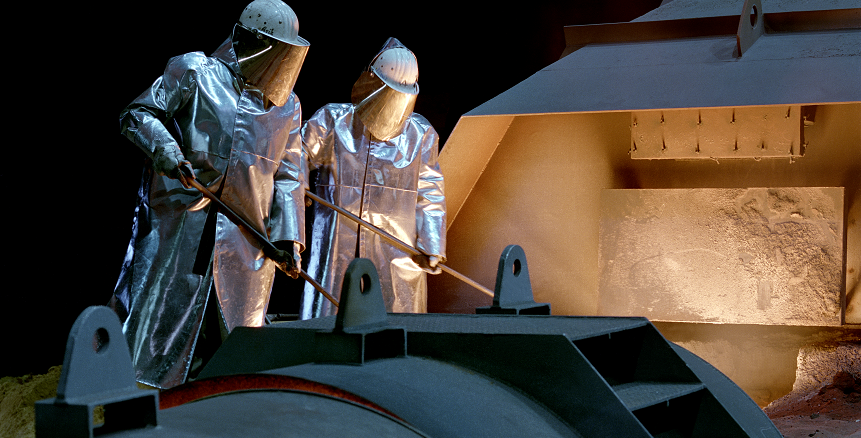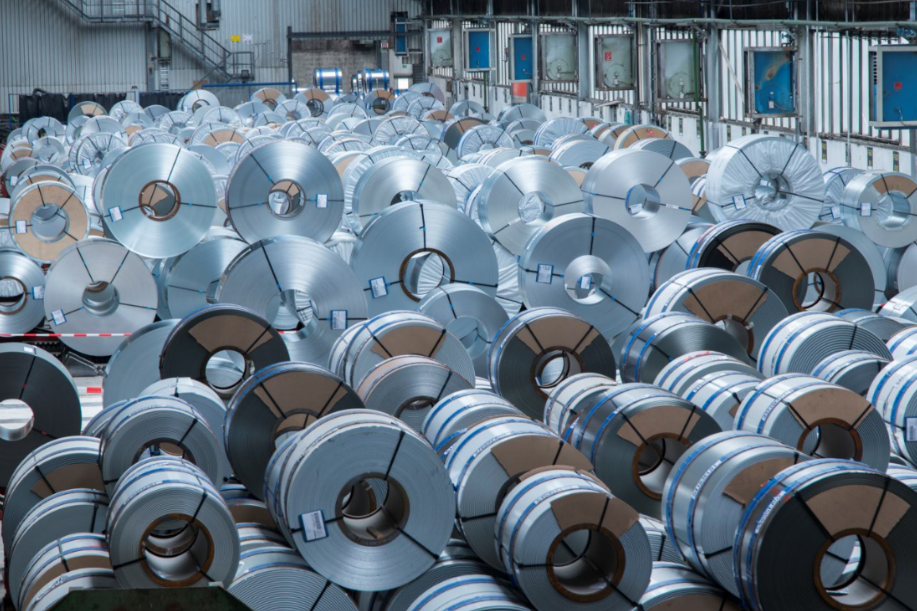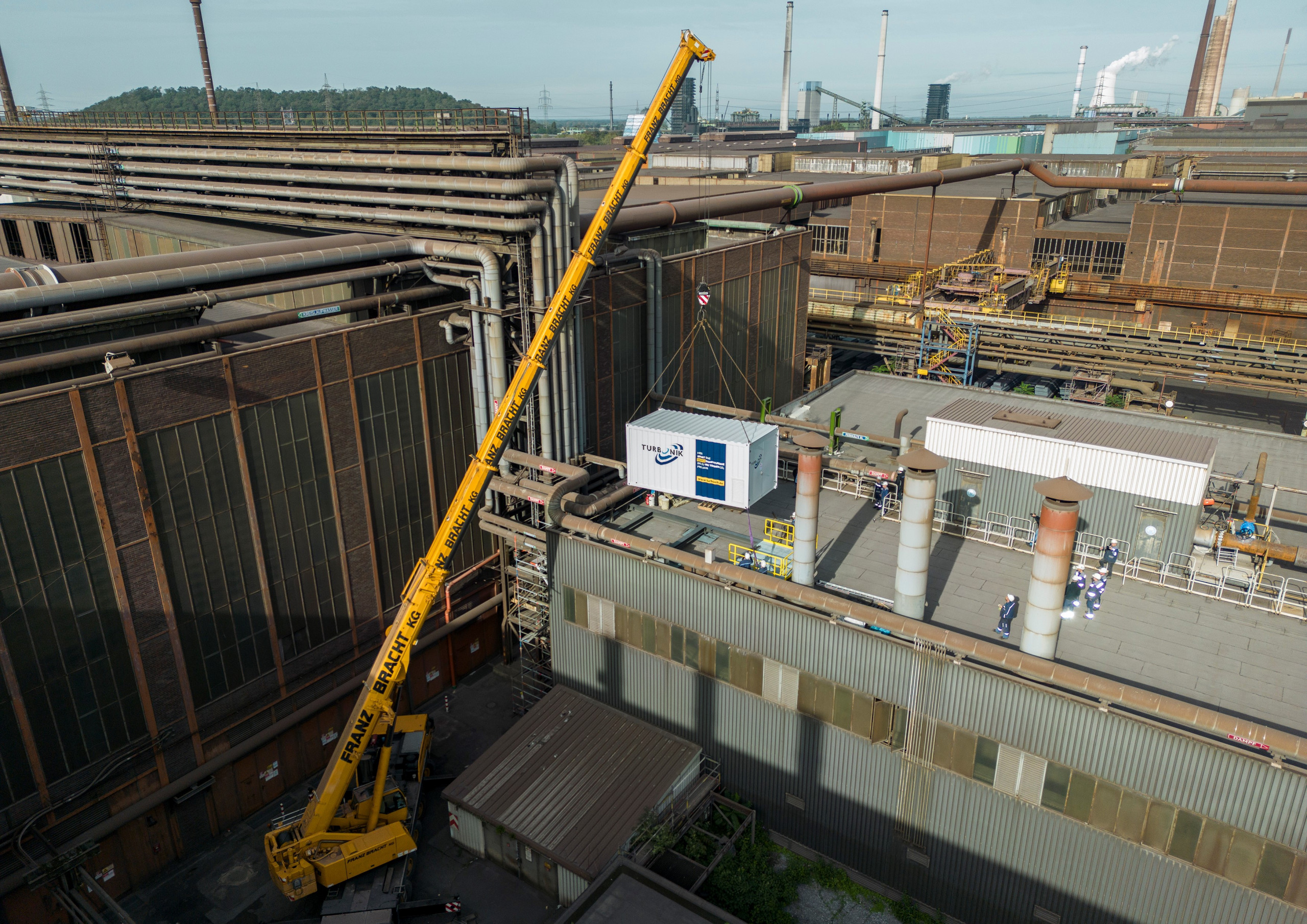
BP and thyssenkrupp Steel enter into a strategic cooperation to support the decarbonization of steel production. The planned collaboration includes the supply of low-carbon (low CO2) hydrogen and electricity from renewable sources.
BP and Thyssenkrupp Steel announced on July 11, 2022 that they have signed a Memorandum of Understanding (MoU) to develop the long-term supply of low-carbon hydrogen and renewable electricity in steel production to drive the transition of steelmaking to renewable energy and low-carbon hydrogen.
thyssenkrupp Steel causes 2.5 percent of CO2 emissions in Germany, mainly at the Duisburg site, where the blast furnaces it operates are the main emitters. By converting its coal-fired blast furnaces to direct reduction plants in which iron ore is reduced with low-carbon hydrogen, thyssenkrupp Steel intends to make steel production climate-neutral in the long term.
As part of their memorandum of understanding, the companies will explore the possibility of supplying blue and green hydrogen, as well as electricity from wind and solar power, through power purchase agreements.

© Thyssenkrupp Steel
William Lin, BP’s Executive Vice President Regions, Cities and Solutions, says: “The steel and energy industries have of course long been closely linked. We supply fuel and feedstock to the steel industry, and our oil rigs, pipelines and turbine towers are made of steel. Thyssenkrupp Steel has set itself the goal of producing its steel in a climate-neutral way by 2045, and low-carbon electricity and hydrogen will play a key role in this. As part of our strategy to offer businesses a range of decarbonization solutions, BP is already investing in and working to develop a portfolio of industrial-scale hydrogen projects in Germany, the Netherlands, Spain, the UK and Australia. With our similar goals and complementary investments, thyssenkrupp Steel and BP can together help accelerate decarbonization in this industry where emissions are difficult to avoid.”
Dr. Arnd Köfler, Chief Technology Officer of thyssenkrupp Steel, adds: “The decarbonization of the steel industry will require enormous quantities of low-carbon and, in perspective, green hydrogen. This will require increasing use of electricity from renewable energies. This can only be ensured by a well-developed hydrogen infrastructure with a supraregional pipeline network. The MoU is an important milestone for us to set the course with BP for a reliable energy supply in the future.”
Steel accounts for eight to eleven percent of global CO2 emissions. It is indispensable for the automotive and construction industries, as well as for the manufacture of industrial machinery. It also forms the basis for a range of decarbonization technologies, including wind turbines, generators and smart grids.
The companies also intend to advocate for policies that support the development of low-carbon hydrogen and the promotion of green steel in Europe. Thyssenkrupp Steel currently produces 11 million tons of crude steel per year and plans to produce 400,000 tons of CO2-reduced steel by 2025. BP wants to push ahead with the production of green hydrogen at its refineries in Lingen/Germany, Rotterdam/Netherlands and Castellón/Spain. The company is developing blue and green hydrogen production projects around the world, including in the United Kingdom and Australia.
BP is focused on working with companies in key industries with high carbon emissions to help them decarbonize. The company’s goal is to become a NetZero company by 2050 or sooner, and to help achieve NetZero globally as well.
thyssenkrupp Steel Europe AG is Germany’s biggest steel producer. The company plans to convert steel production to direct reduction technology as part of its integrated transformation strategy. The aim is to avoid 30 percent of CO2 emissions by 2030. Steel production is to become climate-neutral by 2045 at the latest.




